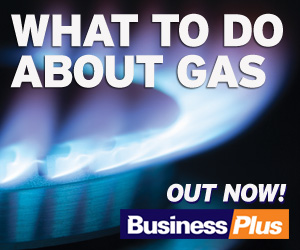Energy is a risk that needs to be managed, as opposed to a cost of doing business, writes David Grainger, gas trading manager, Bord Gáis Energy
The record gas and electricity price increases of 2021 have left many traders in the energy market in shock.
Over the past 12 months, gas prices traded at ten-year lows before surging to record highs in October, as the new gas year and winter season began. Key drivers of gas prices have been carbon and coal prices, storage concerns, low levels of LNG and Russian supply.
The difficulty for anyone buying energy was that, early in the year, prices looked high in comparison to the previous year. The reasonable hope was that they would fall, given the crash of 2020 and the expectation of higher US LNG imports in 2021. Many traders chose to keep positions open in the expectation of lower prices later in the summer.
Unfortunately, those anticipated lower prices just didn’t materialise.
How can energy buyers protect themselves and what are the key lessons?
A key recommendation is to treat energy as a risk that needs to be managed, as opposed to a cost of doing business. This is an approach that most utility companies take to energy costs; they have an amount of energy that needs to be procured for future use and buying that energy at a competitive price is the key requirement.
1 Set out a plan for buying energy
Having a purchasing strategy for energy exposure places limits on the minimum and maximum amounts that can be purchased forward. It enables you to highlight the risks but also allows you to seek ways to manage those risks, by placing limits on what needs to be bought and when.
The risk-based approach removes the emotion from the buying process and aims to reduce excess losses when markets move against you. It will not guarantee you the lowest price in the market, but it will protect from having to make decisions at the highest prices. It’s impossible to ‘beat the market’ on an ongoing basis, but a strategy is the best way to optimise your expenditure.
2 Ensure you can buy forward by rolling contracts
It’s important to ensure your gas and power contracts are renewed on a regular basis. Ideally, look for a new contract over one year in advance of an existing contract ending. By rolling your contracts forward you allow yourself to purchase well in advance of delivery.
3 Consider different types of purchase strategies
Strategies range from purchasing everything on the spot market to fixing 100% of your demand two to three years forward. Which is best depends entirely on what the market has done in the past few months or years, and your specific needs. Price certainty and appetite for risk typically dictate your strategy.
If you want clarity over future costs, you can buy gas in the period prior to delivery (i.e. 12 months). Four quarterly purchases would give an average price ahead of delivery. Where energy buyers have the scope to pass energy costs on to their sales price then a more aggressive pricing strategy, closer aligned to the spot market, may work. For many utilities, strategies tend to be focused around buying in the 12-15 months ahead of delivery so they can provide their customers with a smoothed price on an ongoing basis.
4 Assess your risk appetite
Each individual energy user can assess what kind of strategy they want to pursue by asking the following questions:
· How much certainty do you want over energy costs on an annual basis?
More certainty means fixing more gas on a forward basis, keeping contracts up to date and rolling forward with less prompt exposure.
· How price sensitive is your business to energy movements?
Companies with a high energy input into their business relative to sales or costs are most sensitive.
· How comfortable is your business with volatile energy prices?
Some commodity businesses are more suited to accepting price risks and market volatility.
· How do competitors hedge in the energy market?
Trying to ascertain what the “market” strategy is can give insights into price moves and competitiveness.
For anyone involved in the decision-making process over gas and electricity contracts, regardless how small is their business, they are essentially an energy trader. They need to be aware of the risks in trading energy markets and volatility in prices is a key element of those risks.
Rather than treating energy as an operating cost, it should be viewed as a margin risk and depending on how exposed your business is to that risk, it should be managed accordingly.











